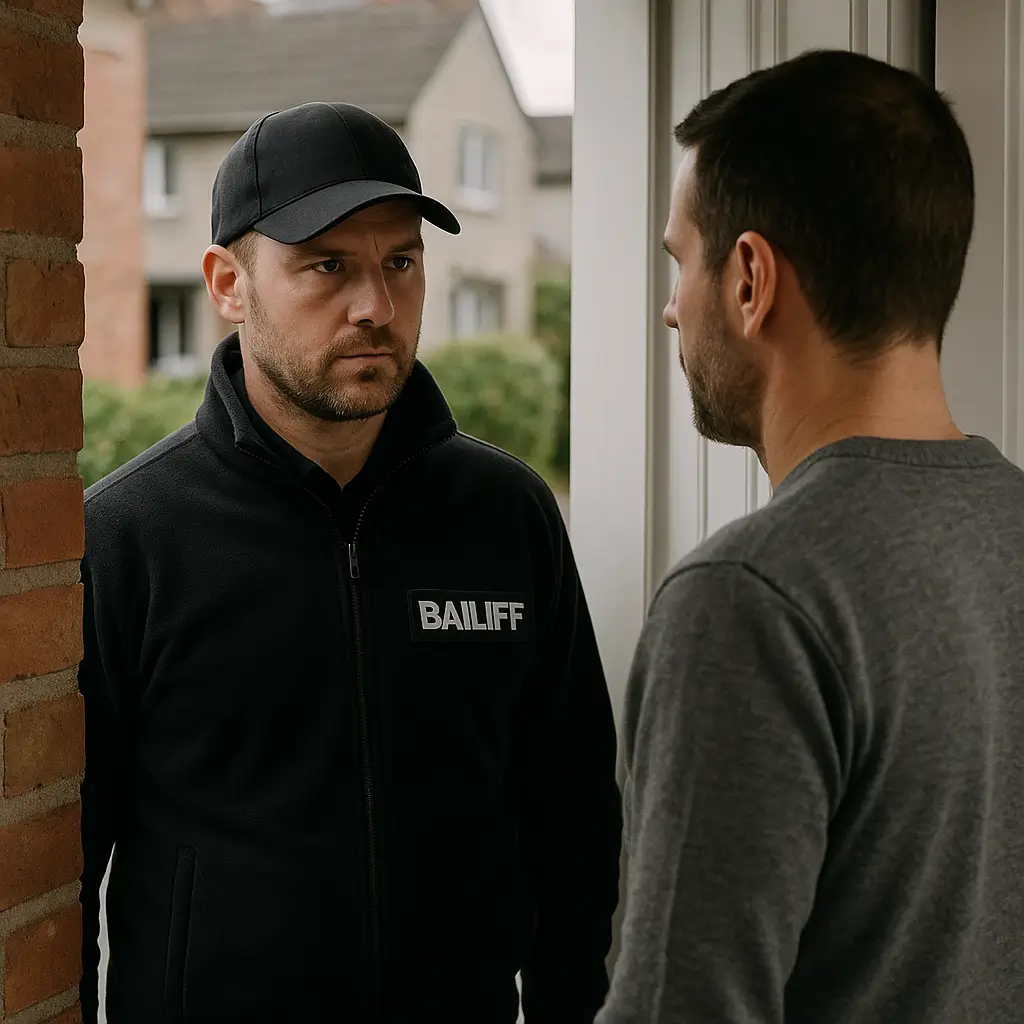Can Bailiffs Force Entry?
It’s natural to feel anxious when facing enforcement, but in most situations, bailiffs cannot force entry. Understanding your rights makes it easier to stay in control. At Bailiff Helpline, we’ve helped thousands stop bailiffs and prevent enforcement action, guiding people through every step with clear, confidential support.

Can Bailiffs Force Entry
Frequently Asked Questions?
- Can bailiffs force entry for CCJ?
Bailiffs enforcing a County Court Judgement (CCJ) for debts like credit cards or loans cannot usually force entry. They can only enter if you let them in or through an unlocked door. Forced entry is rare and generally applies only to High Court writs or specific debts such as tax or criminal fines.
- When can a bailiff force entry?
Bailiffs can only force entry in limited circumstances, such as collecting unpaid criminal fines, Income Tax, or Stamp Duty. Even then, they must use “reasonable force,” like a locksmith, not breaking down doors. For most household debts, they cannot force their way in and must be invited inside.
- What happens if I don’t open the door to bailiffs?
If you don’t open the door, bailiffs cannot usually come in unless it’s for the rare debts where force is allowed. They may leave notices, add fees, or return at another time. Not opening the door gives you time to seek advice and explore solutions to stop bailiff action.
- Can bailiffs force entry with a locksmith?
A bailiff can’t force entry with a locksmith, without a warrant that allows them do so. When collecting criminal fines or tax debts, bailiffs may use a locksmith to gain access if you refuse to open the door. They cannot use this power for standard debts like credit cards, loans, or most council tax arrears.
- Can bailiffs force entry with a warrant of control?
A warrant of control by itself does not usually allow forced entry for ordinary debts. It gives bailiffs the authority to collect, but they can only enter peacefully through an unlocked door or with your permission. Forced entry powers are limited to specific types of debts, not general CCJs.
- Can bailiffs force entry for parking fines?
Parking fines are treated as penalty charge notices, which can be enforced by bailiffs if unpaid. However, bailiffs cannot normally force entry to your home for parking fines. They may instead target goods outside your property, such as your car, to recover the debt.
- Can bailiffs force entry with police?
Bailiffs cannot automatically bring police to force entry. Police may attend to prevent a breach of the peace, but they are not there to help bailiffs gain entry. In rare cases involving criminal fines, police may support enforcement, but for most debts their role is purely to keep order.
- Can a bailiff force entry once inside my porch?
If a bailiff is inside your porch but has not passed through your main front door, they have not yet gained entry. They still cannot force their way further inside unless you invite them in or it concerns debts where limited forced entry powers apply, such as unpaid fines.
- Can bailiffs force entry if I’m not named on the debt?
No. Bailiffs can only enforce a debt against the person named on the liability order or warrant. They cannot legally force entry into a home simply because someone living there is connected to someone else’s debt.
10. Can bailiffs force entry if I’m on holiday?
No. Bailiffs cannot force entry because you’re not at home. If they attend while you’re away, they must send a notice and can only return after the required notice period, following the correct legal process.
11. Can bailiffs force entry if I haven’t received notice?
No. Bailiffs must first send a Notice of Enforcement with at least seven clear days before their first visit. If you have not received proper notice, a forced entry attempt would be unlawful.
12. Can bailiffs force entry to take a neighbour’s belongings?
No. Bailiffs cannot enter to seize goods belonging to someone else, even if they think those items are related to the debtor. Only goods owned by the debtor can be targeted, and only with lawful access.
Take Action Before Bailiffs Do
Ignoring Bailiffs can lead to further enforcement action. The sooner you act, the more options you have.
- Call Now: 0161 820 1298
- Speak With Experienced Advisors
- 100% Confidential Advice